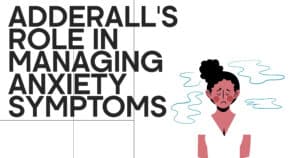It is extremely difficult to experience the passing of a loved one – and it is hard to see someone you care about going through every emotion possible as they grieve, whether they are not ready to move on from the loss or desperately try to focus on the future.
In this article, we will discuss how you can support a family member or friend who recently lost someone, figure out what words to comfort a grieving friend or relative can make a difference, and explore specific measures you should take to help a bereaved person.
How to Help People Begin to Grieve in a Healthy Way
Support matters more than the perfect words. While you may worry about the phrases you choose or the tone of voice you use, remember how true the expression “actions speak louder than words” is.
Offering meaningful support to a person in such a vulnerable time, being there for them, especially if they have no one else to rely on, and just spending time with them in complete silence as they process the loss of a loved one can be the best source of help at the present time. Do not push and do not rush – let the individual grieve at their own pace.
Recognizing the Emotional Impact of Grief
It is hard to understand how grief affects a person’s psyche if you cannot relate to such a heartbreaking experience, or if the way you deal with distressing circumstances is fundamentally different from their approach.
The emotions can vary from numbness and sadness to shock and anger, the behavior can change within hours to make the individual unrecognizable, and grief may even affect their body – a person can feel dizzy, tense, exhausted, and in physical pain.

The physical symptoms are of a psychological nature and must be taken seriously in case the person feels like they cannot breathe, their chest is tight, or they are about to lose consciousness.
What to Say to Someone Who Lost a Loved One
There are certain phrases you can use before talking to a grieving individual for the first time after learning about their loss:
- Offer sincere condolences – saying “I am sorry for your loss” and naming the person directly remains the most effective words of comfort in death for a reason.
- Pick a particular memory you associate with the individual who passed away. It does not have to be a life-changing event or an inspirational quote – something that makes others smile or reminds them of a positive trait of their loved one is good enough.
- Ask the person directly, “Do you need any help?” and “Do you want to talk about what happened?”. Even if the answer is no, you are making them realize they are not alone in their grief and can share their feelings with you.
- Acknowledge the pain of the individual by saying “I can see how hard it is for you” and give them space to process this feeling.
Avoiding Harmful Phrases and Missteps
There are also words you should avoid if possible – try to practice what to say if you have previously felt awkward in tense situations or you struggle to come up with the right things to say without preparation:
- Do not undermine the severity of the loss if the individual died young or succumbed to a long illness.
- Do not assume their emotions – for instance, you may be surprised to see the person grieving after someone they had a bad relationship with has passed away.
- Do not tell them that the pain will be over or they will feel better soon – although it is a likely scenario, the grieving individual may feel insulted.
What Not to Say to Someone Who Is Grieving
There are, unfortunately, words that can cause further distress to a grieving individual:
- Do not try to minimize their loss by saying “It was a part of God’s plan” or “They are in a better place now”.
- Do not compare the passing of this person with anything else, even if you lost people yourself.
- Do not attempt to get out of a difficult situation by changing the topic – prioritize your friend’s feelings now.
The Stages of Grief: What to Expect and What’s Normal
Although the grieving process is rarely linear, most people have to deal with five stages of grief as they are coming to terms with their losses:
| Stage | Description |
Denial | The loss feels surreal – it is nearly impossible for an individual to acknowledge what happened. They may forget about the death of a loved one, avoid reminders of their loss, and look for distractions |
Anger | This stage is particularly difficult if the death occurred suddenly or if there is someone at fault. A grieving person cannot believe how unfair the situation is, they feel resentful and frustrated, become aggressive, and even blame themselves for the loss |
Bargaining | A person will ruminate over the death thinking they may have prevented it from happening or judging others for not helping enough. Some people try to negotiate with a higher power and pray hoping for a miracle |
Depression | Depressive feelings and thoughts become prevalent – an individual will feel numb and empty, they will cry a lot and avoid social gatherings, and they will feel unable to deal with their daily responsibilities |
Acceptance | At some point, a grieving person will accept the reality they live in now. They will start adapting to new circumstances of their existence, look forward to future events, and take care of themselves and others around them with more enthusiasm |
Healthy Ways to Support a Grieving Friend or Family Member
It is never easy to see a person you care about struggling after their loved one passes away. Here is what you can do to ease their burden:
| Advice | Description |
| Show Authentic Compassion | Even when the emotions are high, it is possible to tell someone is being dishonest by how they talk and behave. You have to genuinely care about the individual you are supporting, speak from the heart, and be ready to help if you promise to |
Offer Practical Help | From organizing the funeral and communicating with third parties to taking over the daily responsibilities of the individual, such as household chores – there are many ways for you to be useful. Remember that you should not insist in case they refuse your assistance – simply remind them you are available |
Follow Their Lead | You should not assume your way to deal with the loss is the right one, and your friend or family member will feel the same. Instead, your consolation is supposed to work in their favor – for instance, if they would rather not bring certain topics up, make sure you avoid them as well |
| Encourage Professional Help | When grief becomes overwhelming and weeks and months do not make emotional pain less sharp, it may be time to consider therapy – advise your friend or relative to talk to a specialist and promise to facilitate this process if needed |
Supporting Someone Through Grief? CA Mental Health Can Help
While some people are resilient enough to bounce back and avoid long-term mental health issues after the death of a loved one, others are not so lucky – they need to rely on their inner circle to get through such a difficult moment. If the pain is too much to bear, you or the person you care about should not hesitate to seek professional help.
At CA Mental Health we can guide you through a time of loss and distress – contact us without delay and start healing.

FAQs
How do you help someone who is grieving?
To help people begin to grieve, you should prioritize moral support – this is particularly crucial if they lost someone very dear to them. Practical support plays its role as well – if you can shoulder their responsibilities and shield them from unnecessary communication, it would be a great way to help.
What to say to someone who lost a loved one?
Say how sorry you are, bring up a special memory about the person who passed away, remind them how to reach out to you in case they want to talk, and recognize how painful the loss must feel for them.
What are the stages of grief?
There are five universally recognized stages of grief – denial, anger, bargaining, depression, and acceptance. In recent years, some specialists also distinguish shock and testing (also known as processing) as separate stages.
How can you offer emotional support?
Listen to the person without judgment, remain respectful and calm, and provide them with the reassurance they need. See how the individual in question reacts – some feel better when they talk, others want to hear your memories about the person who passed away, and certain individuals can heal through silence and a compassionate hug.
What are the worst things to say to a grieving person?
Do not express your resentment towards the individual who passed away even if you disliked them. Do not say that it is time to move on or expect your friend to suppress their emotions for your benefit and peace of mind. You also cannot tell them not to cry or scream if it helps them release the tension.







